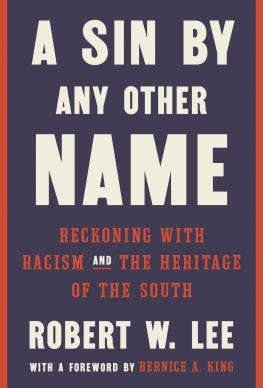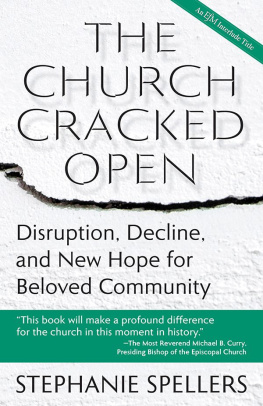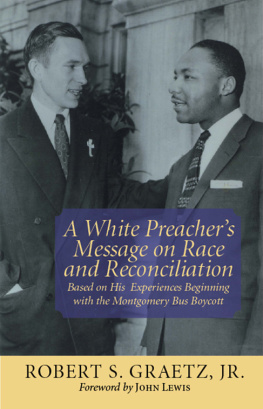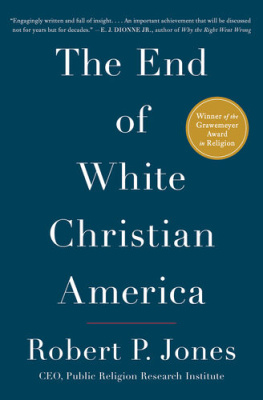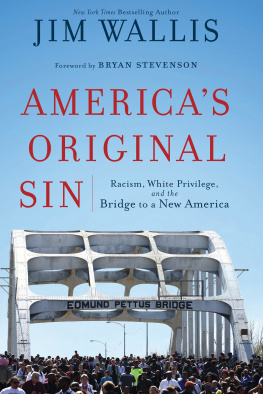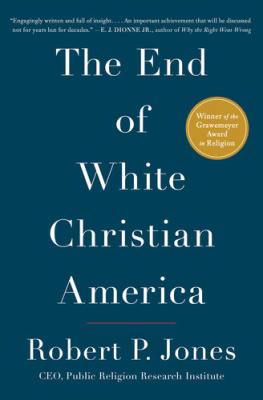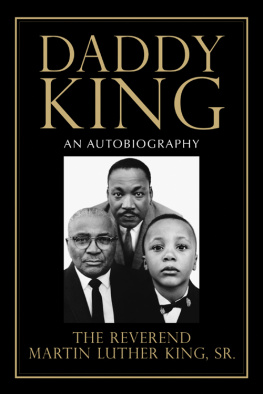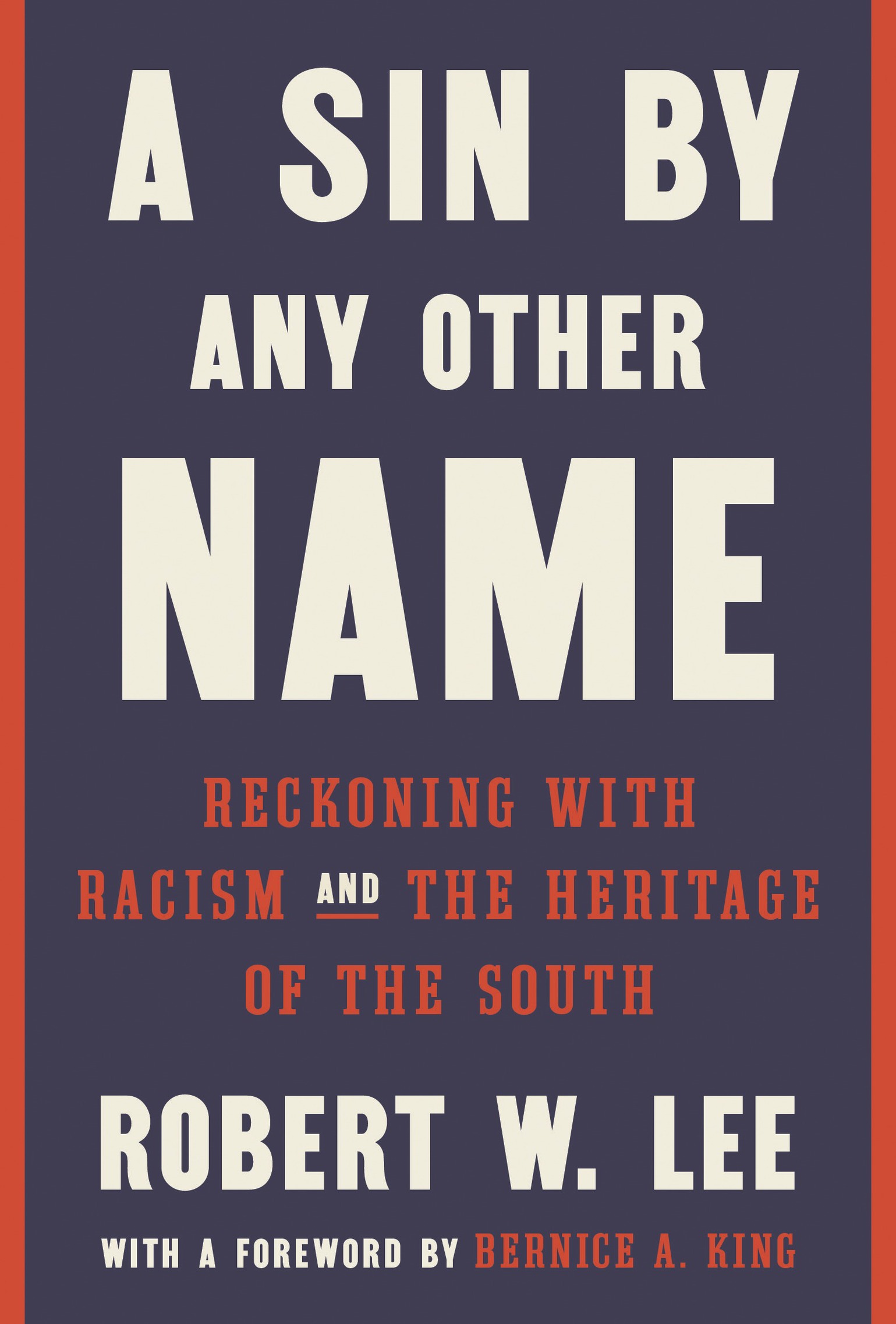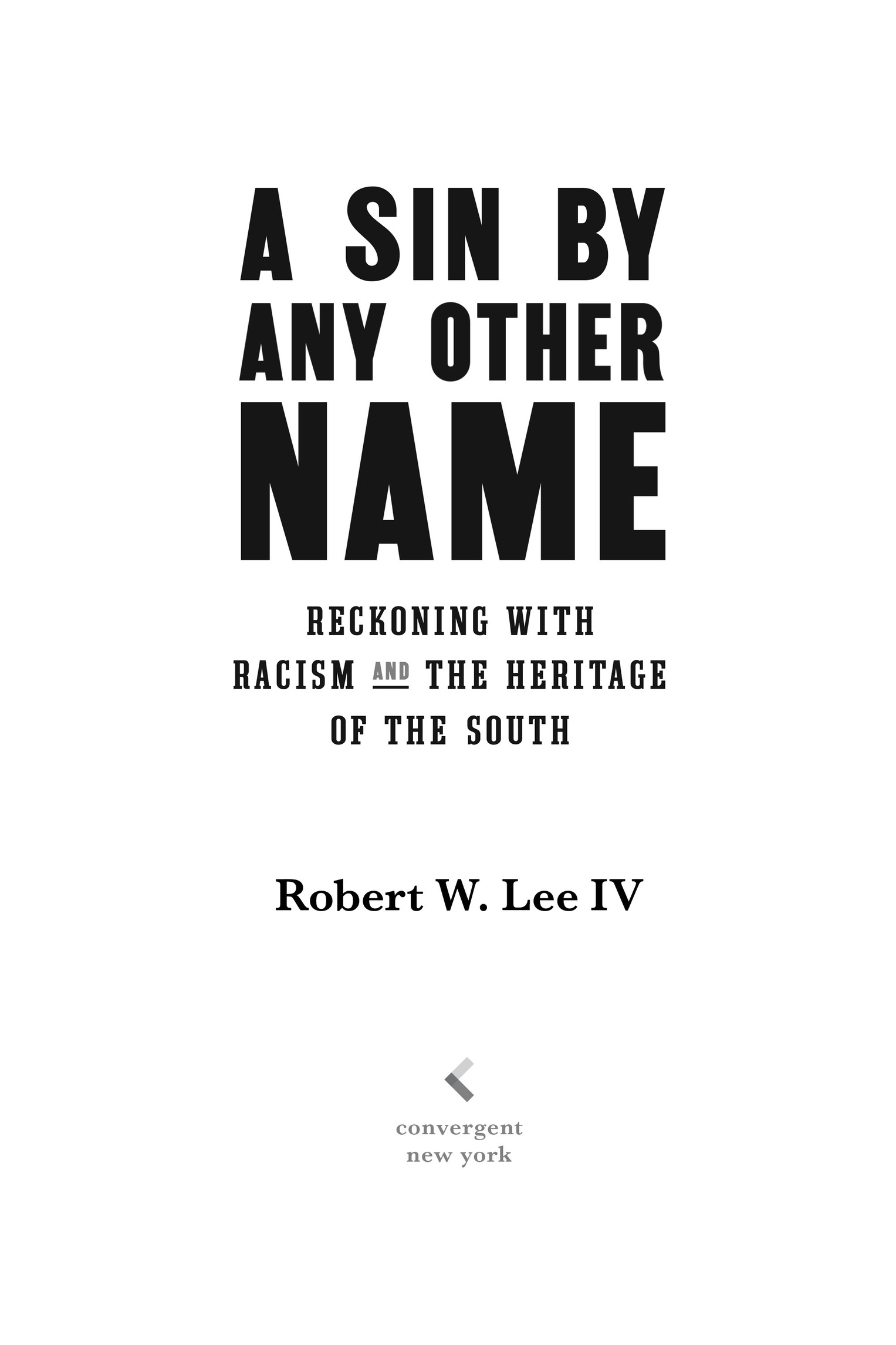Copyright 2019 by Robert W. Lee IV
All rights reserved.
Published in the United States by Convergent Books, an imprint of the Crown Publishing Group, a division of Penguin Random House LLC, New York.
CONVERGENT BOOKS is a registered trademark and its C colophon is a trademark of Penguin Random House LLC.
Library of Congress Cataloging-in-Publication Data is available upon request.
To Mom and Dad: Thank you for your love. You have shown me a sense of place, grace, and hope while not conforming to our history, and for that I remain forever grateful.
To Professor Jonathan L. Walton, Bertha, Gil, Cody, and Josh Hamilton, and in faithful memory of Gilbert Hamilton, who collectively changed how I view race, the South, and everything we hold dear down here: You are the reason I committed pen to paper; you are all saints of a living God.
Sometimes it is necessary to reteach a thing its loveliness.
FOREWORD
The Reverend Dr. Bernice A. King
I am in awe of God our Father and the truth of His Word. His ways are not our ways, and His thoughts are not our thoughts. For example, who could have imagined that a descendant of Confederate general Robert E. Lee, a man of war who owned slaves, and a descendant of Martin Luther King, Jr., a prophet who nonviolently fought for freedom and peace, would be connected for the cause of standing against systemic racism and working toward justice, equity, and peace? I dont think that any of us saw this coming but God.
I am honored to write the foreword for this book, because I believe that God is still at work for the cause of racial reconciliation. In April 1963, my father wrote to the clergy his Letter from Birmingham Jail. Now, fifty-five years later, Robert W. Lee IV, a descendant of General Robert E. Lee, has written the love letter to the church and to the South that you now hold in your hands. Both my fathers letter and Roberts book deal with racism in America and point to our need for racial reconciliation.
Before Robert or I were born, my father prayed the following: God grant that the people of good will would rise up with courage, take over the leadership, and open channels of communication between races, for I think that one of the tragedies of our whole struggle is that the South is still trying to live in monologue rather than dialogue. Perhaps for such a time as this, in answer to my fathers prayer, God has raised up Robert W. Lee IV to join the cause of opening the channels of communication between races. Sadly, but truthfully, the 2017 event in Charlottesville opened our eyes to see just how bad things still are in America with regard to race relations. For this cause, Robert W. Lee IV courageously spoke up on a global stage. This clearly wasnt easy, and it cost him dearly.
I know from experience that being courageous comes with a cost. On April 4, 2018, the world commemorated the fiftieth anniversary of the assassination of my father. My father had great love for God and humanity. His life was a living epistle that echoed Jesuss words from the Sermon on the Mount: Love your enemies, bless those who curse you, do good to those who hate you, and pray for those who spitefully use you and persecute you. My father was chosen by God to live out this word in the twentieth century, and he obediently carried out his assignment. Armed only with the love of God and the Holy Spirit, he fought courageously and nonviolently to help bring about change.
He was assassinated because of fear and indifference. Fear, because people were afraid that his challenge to racial and economic inequity would cost them their power. Indifference, because too many good people stayed silent in the face of hate, systemic racism, and unjust acts. But we thank God that the story does not end there. The assassins bullet may have killed my father, but it did not stop or kill the good work that God started through him. The Bible tells us in Philippians 1:6, He who has begun a good work in you will complete it until the day of Jesus Christ. When God begins a good work, He will raise up whomever He chooses to continue and complete it.
My mother once said, Struggle is a never-ending process, and freedom is never really won; you earn it and win it in every generation. In the spirit of those words, I am so glad that God placed Robert W. Lee IV in this generation and moved him to join us in this struggle. As you read A Sin by Any Other Name, you will see that as a child, Robert did not see himself as being called to the cause of advancing freedom and racial reconciliation. Nevertheless, God chose him for the assignment.
The same has been true in my journey. Even though my parents were iconic nonviolent leaders, I did not see myself doing what I now know I have been called to do: serving as a bridge builder between the generations and continuing to advance the work that my parents began. I was only five years old when my father was assassinated, so I did not remember him as the leader of the civil rights movement. Most of what I learned about my father and his work came from my mother, who, in our home, consistently talked to my siblings and me about who he was. I also learned about my father through conversations with others who knew him well, and, ultimately, as I grew older, through his words, books, and speeches. God chose my mother to make sure that Daddys words and speeches remained available, not just for me and my siblings, but for the world. I am forever grateful to God that she diligently and faithfully carried out her assignment.
The work of carrying on my parents legacy of love and nonviolence didnt come easily for me. Because my father was killed by a white man, at one point in my life, I hated white men. But God had a different plan for me. He put several white men on my lifes path to show me kindness. From those experiences and others, I came to see that what my father said is true: Hate is too great a burden to bear and Men hate each other because they fear each other. They fear each other because they dont know each other, and they dont know each other because they dont communicate with each other, and they dont communicate with each other because they are separated from each other. In order to tear down the walls of hatred and fear, we must begin to communicate with one another and understand each other so that we can work together to eliminate systemic and institutional racism.
Like my father, some of us are called to communicate with the masses, but I believe that all of us are called to communicate with one another. At the King Center, we began a series called The Beloved Community Talks, in which we bring together voices with different points of view to have courageous conversations about various issues impacting our communities, nation, and world, with the expressed purpose of bridging the divide. It was Gods timing, and so appropriate, that Robert was able to join the Beloved Community Talks of 2018, where we focused on mans role and responsibility in bridging the racial divide.
Ultimately, though, transformational public dialogues must be accompanied by one-on-one talks around our dining room tables, in which parents communicate with their children and neighbors communicate with neighbors. An essential part of my fathers development took place around his familys dining room table, where he and his siblings were able to talk with, learn from, and relate to others for growth and change; as you read this book, you will see through Roberts courageous stories that this is also what happened with him. His learning and development took place through transformational conversations in which he got to know and love African American women like Mrs. Janie, Mrs. Bertha, and others. Those seemingly little but significant one-on-one encounters with those ladies led to the larger conversations that Robert is now having as he speaks with leaders, influencers, and ordinary people all across America.

